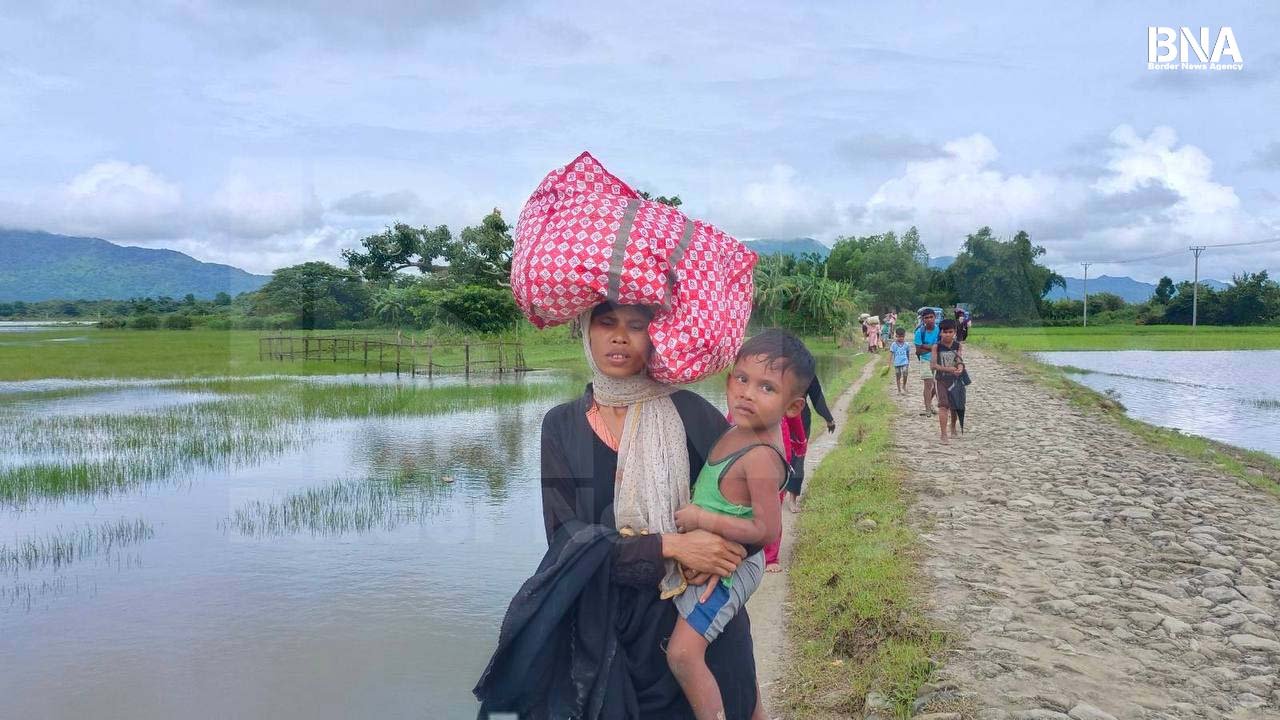Pregnant women among the war-displaced in Arakan are in urgent need of assistance, including medicine and healthcare services.
Despite being pregnant, these women are reportedly unable to receive the necessary vaccinations that expectant mothers typically require.
Additionally, due to financial difficulties, they struggle to access adequate medicine and proper nutrition during pregnancy.
“There are many difficulties. Job opportunities are also scarce. But even when things are tough, we have to find a way to survive. I am now four months pregnant, but I have not received any vaccinations yet. Work is not going well, and I couldn’t get the necessary vaccines because I can’t afford them,” said a pregnant war-displaced woman from Maungdaw Township to Border News Agency.
In the Arakan region, due to the skyrocketing prices of goods, pregnant women say they cannot afford nutritious food for both themselves and their babies.
Additionally, war-displaced people report that they are not receiving international humanitarian aid. Since they are also unable to work, they are in urgent need of assistance for food, shelter, and basic necessities.
“How can we manage to eat if there are no job opportunities? We need support for the essential needs of childbirth. There are many necessities when giving birth to a child. If a mother has no money at all when delivering a baby, it becomes extremely difficult. We hope to receive aid to ease these hardships,” a pregnant displaced woman told Border News Agency.
In the final phase of the Arakan decisive war, the Arakan Army (AA) has completely taken control of Paletwa and several townships, including Maungdaw, Buthidaung, Rathetaung, Ponnakyun, Kyauktaw, Mrauk-U, Minbra, Myaybon, Pauktaw, Rambre, Thandwe, Taunggoke, Ann, and Gwa.
In the areas under the Arakan Army’s control, the Arakan People’s Revolutionary Government has been implementing administrative mechanisms and providing public services for the people, according to local residents.
The Arakan People’s Health Department is also part of these public services, providing healthcare to the people. However, healthcare workers report that there is still a shortage of medical staff, medicines, and equipment.
Due to these shortages, local residents believe that international humanitarian organizations should provide cross-border aid to support the healthcare needs of the people in Arakan.
“If the international community truly has the goodwill and sincere intention to help the suffering people of Arakan, it would be good if they could provide as much assistance as possible. The people are facing various hardships. Therefore, until international organizations can fully establish their stance and independence, at the very least, they should provide support for education, healthcare, and food supplies. Even a small-scale humanitarian intervention, like the World Food Programme (WFP) model, could be beneficial for the people,” said a former Member of Parliament from Maungdaw Township to Border News Agency.
In the areas under the Arakan Army’s (AA) control, efforts are being made for reconstruction and development, along with the establishment of Humanitarian and Development Coordination Offices (HDCOs) to facilitate humanitarian and development cooperation. However, local residents say that a significant amount of humanitarian aid is still urgently needed for the people of Arakan.
The Humanitarian and Development Coordination Office (HDCO) is led by Twan Morn Naing, the elder brother of Arakan Army (AA) Commander-in-Chief General Twan Mrat Naing. According to local residents, the HDCO is working in collaboration with international humanitarian organizations, foreign embassies, and civil society groups to coordinate humanitarian aid and development efforts in Arakan.
Therefore, local residents believe that the Arakan People’s Revolutionary Government should open pathways and facilitate the protection and cooperation of international humanitarian organizations to ensure essential aid reaches the people of Arakan.
In the Arakan decisive war, the Arakan Army (AA) has taken complete control of all three border regions of Arakan, including the Arakan-Bangladesh border, Arakan-India border, and other frontier areas. As a result, the international community suggests that humanitarian organizations should provide cross-border aid to support those in need.






